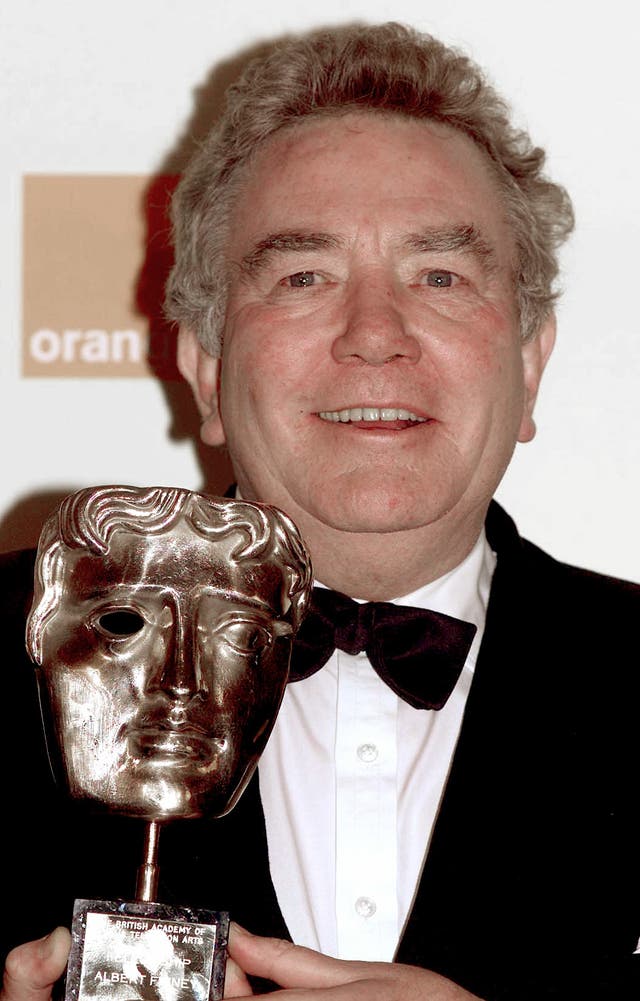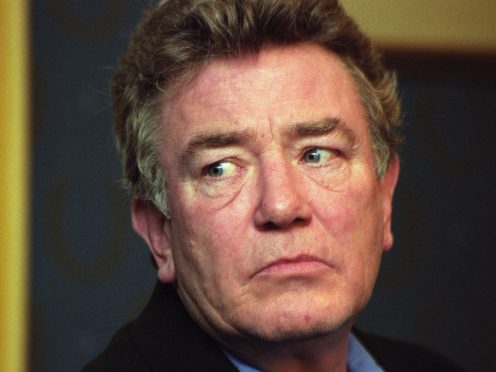Albert Finney was adored for his wide variety of roles that crossed generations but will always be remembered as one of the “angry young men” in the working class film and theatre renaissance of the early 1960s.
He was part of a new wave of actors in the movement sparked in the mid-1950s by working class and middle class novelists and playwrights, starring in Saturday Night And Sunday Morning in 1960, one of the first gritty kitchen-sink dramas.
A five-time Oscar nominee who could seemingly play any character offered to him, Finney was also known for roles in films including Tom Jones, Murder On The Orient Express, Annie, Erin Brockovich, Skyfall, two of the Bourne films and Big Fish.
In one of his lesser TV roles in The Gathering Storm, he won critical acclaim for his portrayal of Winston Churchill.

Born on May 9 1936 in a working class area of Salford, Finney knew from an early age that he wanted to act but at the time there were few opportunities for someone from his background.
At 17, he was accepted by the Royal Academy of Dramatic Arts and later became a member of the Royal Shakespeare Company.
After graduating in 1955, he made his professional stage debut in Julius Caesar in Stratford-upon-Avon, where he also under-studied Laurence Olivier.
Finney made his movie debut with a small part alongside Olivier in The Entertainer in 1960, directed by Tony Richardson.
Richardson then offered Finney the lead in Saturday Night And Sunday Morning – part of the kitchen-sink cultural movement of men who were disillusioned by modern society – and period romp Tom Jones.
The latter made him a major star and gave him the first of his five Oscar nominations.
He was awarded a Bafta for Saturday Night And Sunday Morning, hailed as the most promising newcomer of the year.
Finney turned down the title role in Lawrence Of Arabia but gained plaudits in a string of acclaimed movies, including Murder On The Orient Express – in which he played Agatha Christie’s Hercule Poirot – The Duellists, Shoot The Moon and The Dresser.
As well as acting, Finney proved himself as a singer, starring in the musicals Scrooge in 1970, in which he played Ebenezer Scrooge, and in Annie in 1982, playing the strict but kind-hearted billionaire Oliver “Daddy” Warbucks.
In later years, Finney appeared in two of the Bourne films – The Bourne Ultimatum and The Bourne Legacy – and his final film role was in 2012 James Bond movie Skyfall.
On the small screen, Finney’s TV works includes Karaoke, Cold Lazarus, The Green Man and My Uncle Silas.
But biographical TV film The Gathering Storm in 2002 was his finest moment, with his portrayal of Churchill seeing him win a Bafta and an Emmy Award.
Finney was also recognised for his work on the stage and was nominated for two Tony Awards for his work on Broadway.

He was nominated for best actor in a play for Luther in 1964, and for the same accolade for 1968 play A Day In The Death Of Joe Egg.
Nominated for five Oscars during his career, including best actor for Tom Jones and best supporting actor for Erin Brockovich, Finney shunned attending the Academy Awards.
He received the Bafta Fellowship in 2001 but reportedly turned turn down a CBE in 1980 and a knighthood in 2000.
He was once quoted as saying: “My job is acting, and that is why I hate interviews or lectures, explaining myself to an audience.”
Finney had one son, Simon, from his marriage to Jane Wenham.
Finney died at the age of 82 following a short illness.
